Reading comprehension Normal Governance and Civics Worksheets for Ages 6-8
7 filtered results
-
From - To
Discover our engaging Reading Comprehension Governance and Civics Worksheets designed for children ages 6-8. These worksheets combine essential citizenship knowledge with reading skills practice, fostering a comprehensive understanding of social studies. With vibrant illustrations and age-appropriate texts, our worksheets cover vital topics like community roles, laws, government functions, and civic responsibilities. Perfect for the classroom or at-home learning, they empower young learners to build critical thinking and analytical skills while nurturing their interest in governance and civics. Help your child grow into an informed and active citizen with these interactive educational resources. Download today from Kids Academy!
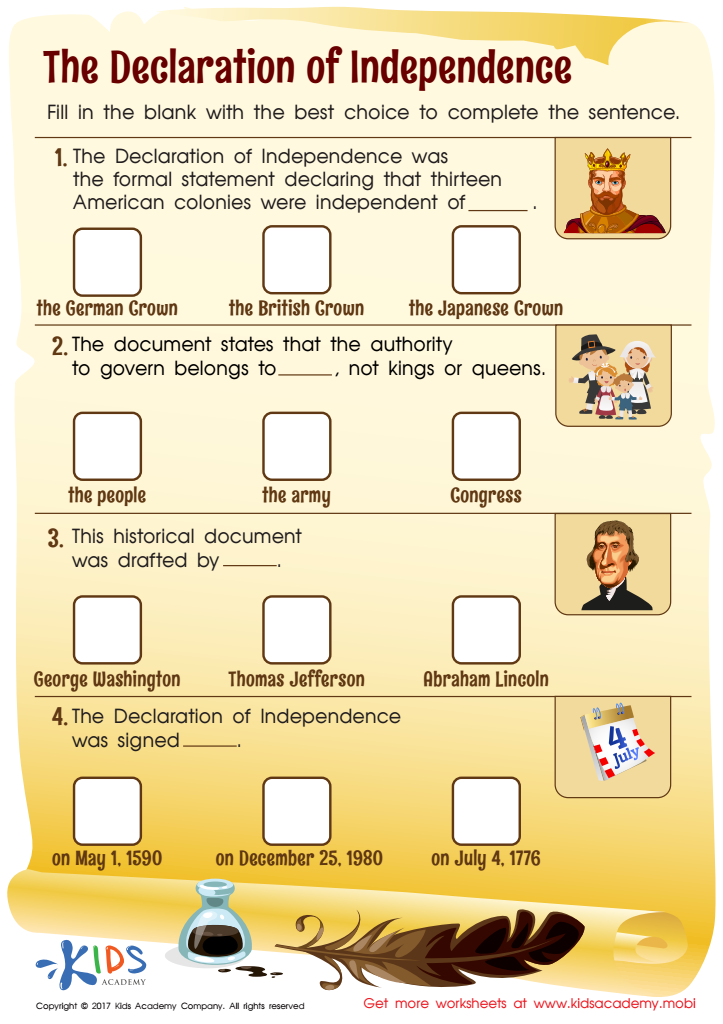

Declaration of Independence Worksheet
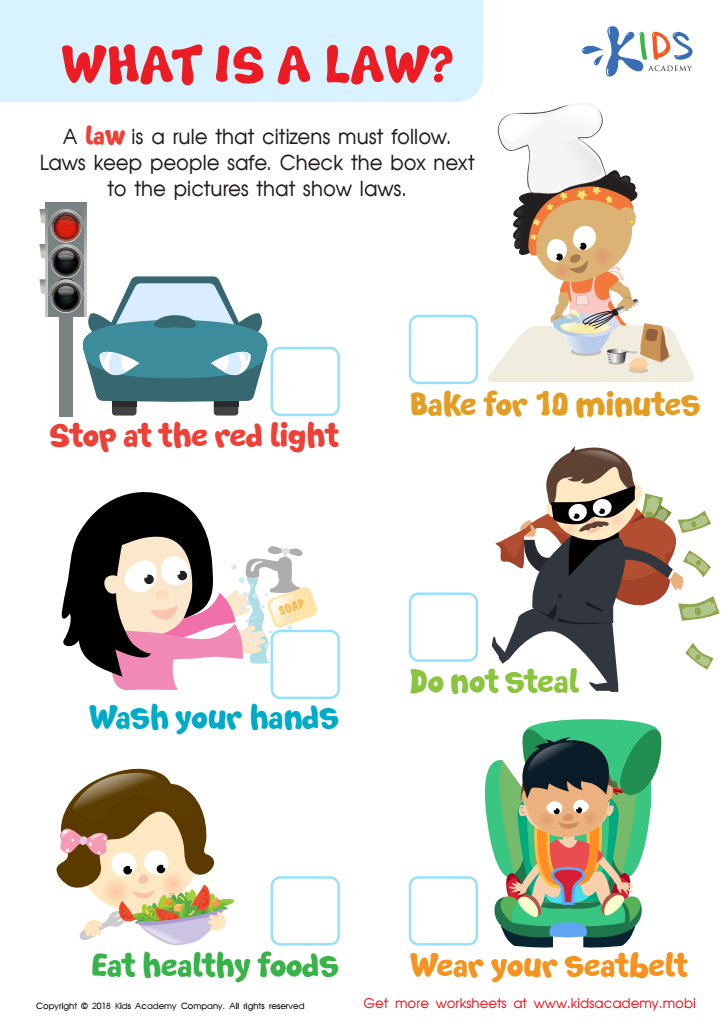

What is a Law? Worksheet
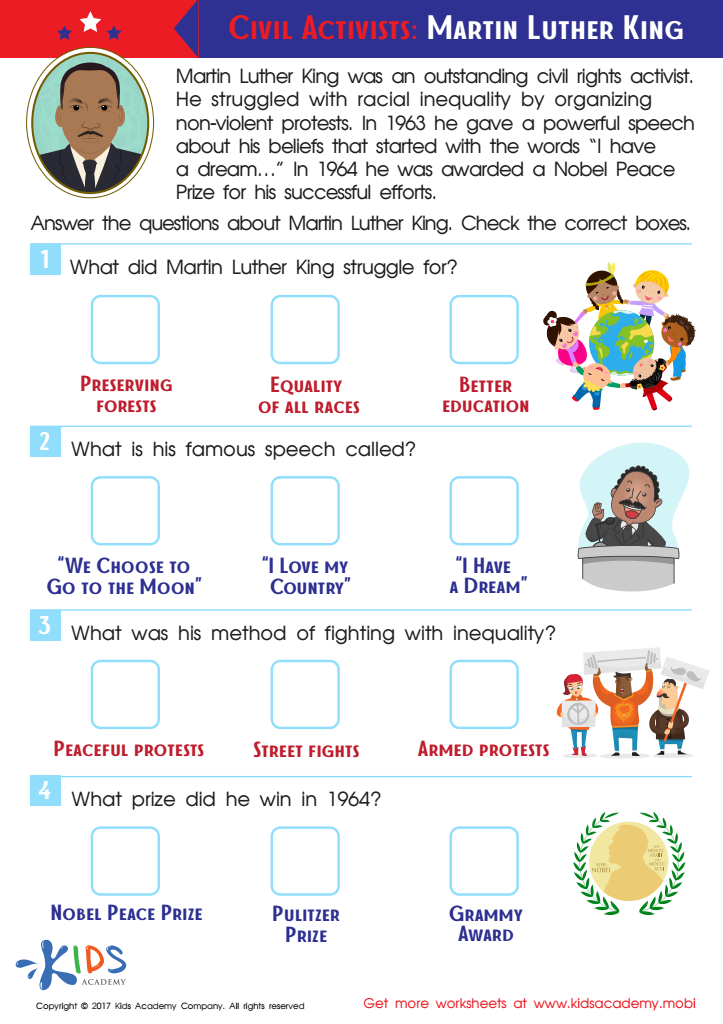

Martin Luther King Worksheet
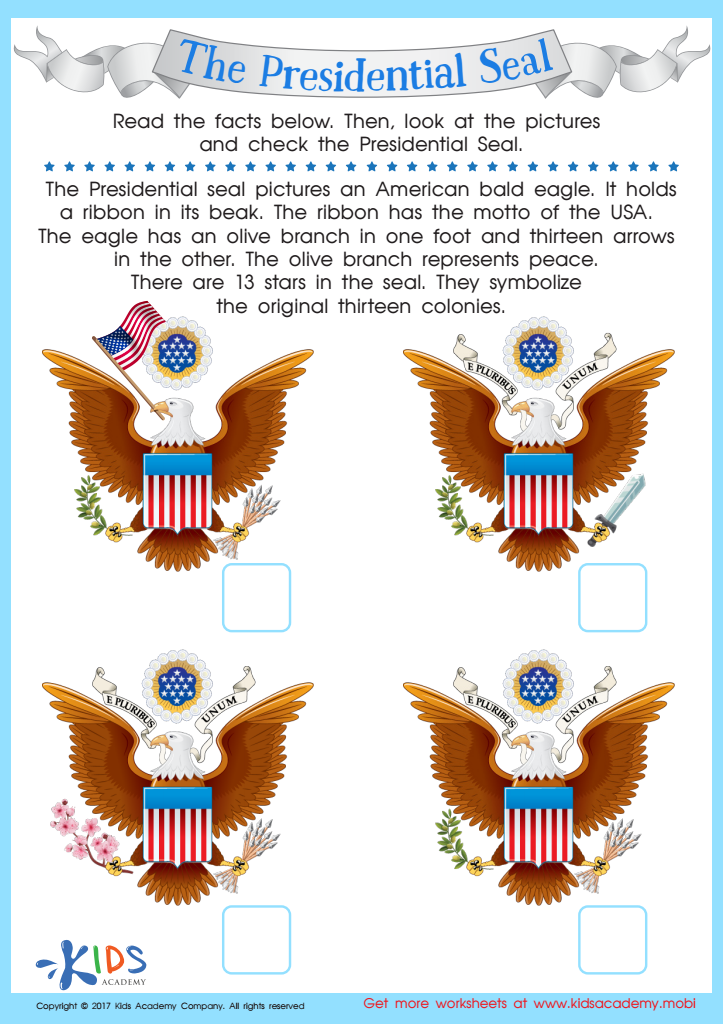

The Presidential Symbol Worksheet
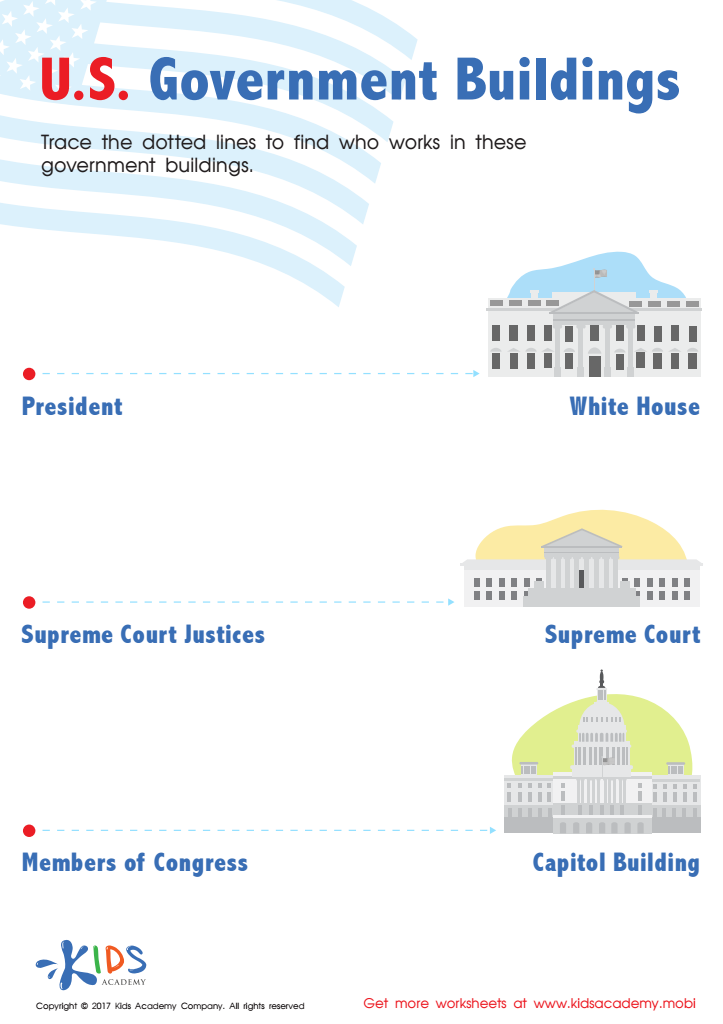

US Government Buildings Printable
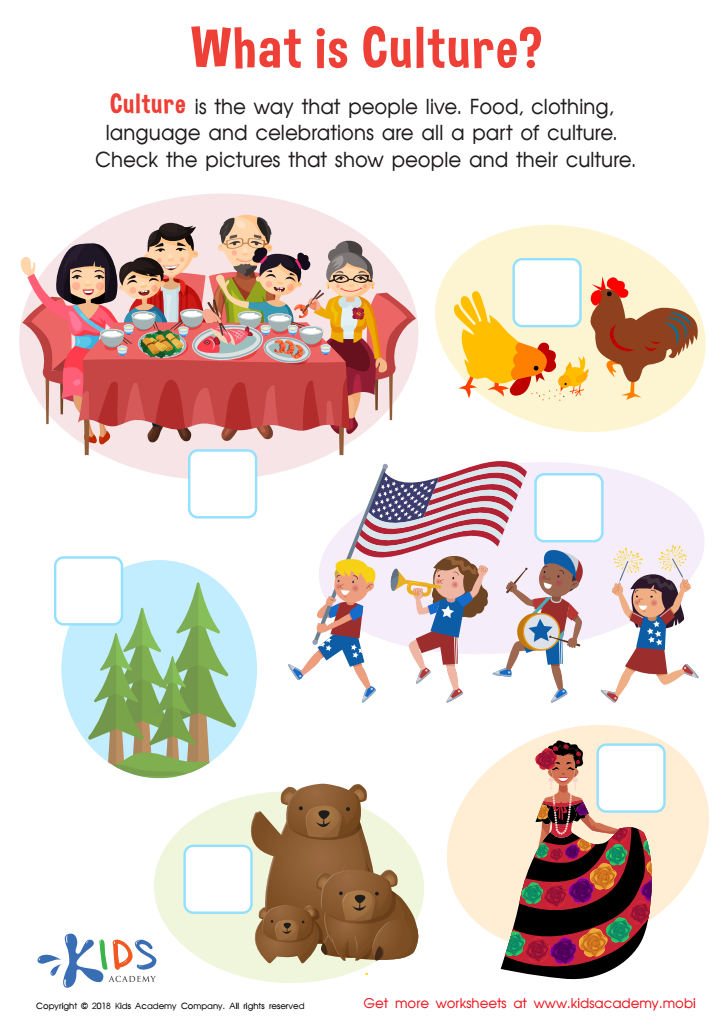

What Is Culture? Worksheet
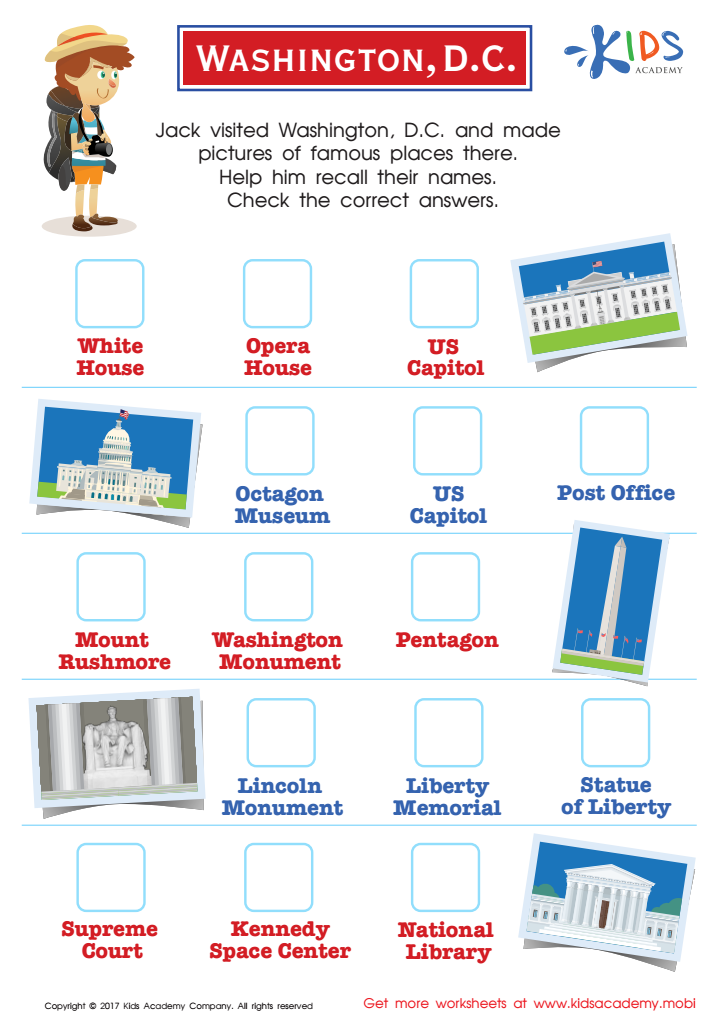

Washington D.C. Printable Worksheet
Reading comprehension is fundamental for young learners, enabling them to grasp materials across all subjects, from maths to science. For ages 6-8, it lays the foundation for future academic success and lifelong learning. This skill empowers children to understand and process information, vital for cognitive development. Strong reading habits foster improved vocabulary, sharper reasoning skills, and a greater ability to follow detailed instructions.
Equally important is an early introduction to governance and civics. These subjects cultivate an understanding of societal structure, community roles, and citizenship responsibilities. Teaching kids about governance provides them with a sense of how decisions are made in a community, imparting basic principles of democracy and justice. Civics education, focusing on community roles and values such as respect, cooperation, and fairness, helps children grasp their place within broader societal contexts. Early awareness can inspire active, informed participation in their communities and encourage empathy and social responsibility.
Overall, integrating reading comprehension with governance and civics education equips young students with critical thinking skills and social awareness. These foundational areas combine to develop better-educated, conscientious future citizens who are prepared to contribute meaningfully to their communities. Parents and teachers should prioritize these components to ensure well-rounded development through elementary education.
 Assign to My Students
Assign to My Students










